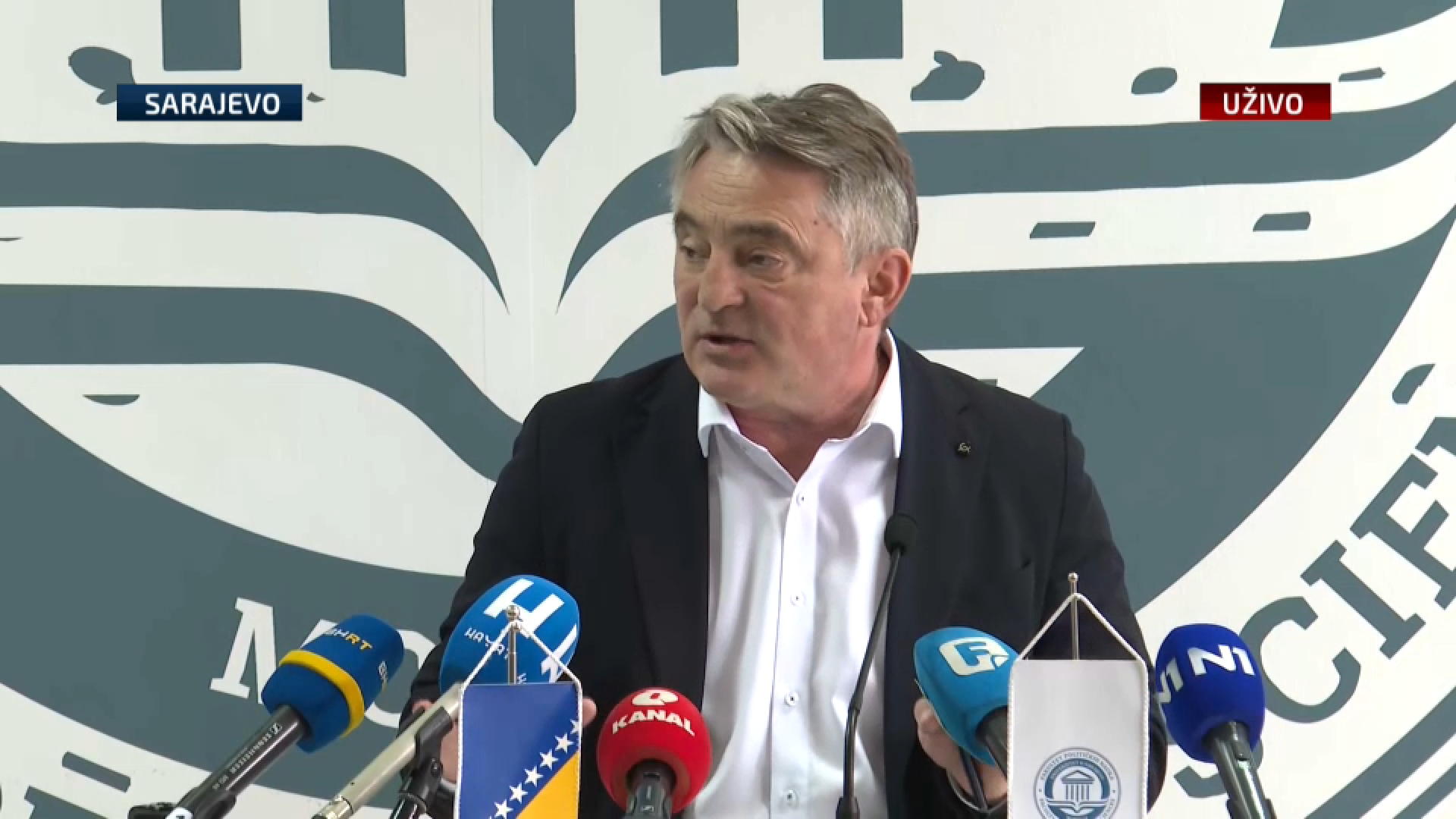
Bosnia and Herzegovina Presidency Chairman Zeljko Komsic has said that he will advocate for his country to become a civic state with the rights of the individual in its focus, noting that the current model, based on the rights of constituent peoples, is unsuccessful as it perpetuates conflicts.
Oglas
Komsic made the statement on Tuesday, in a lecture he delivered at the Sarajevo Faculty of Political Science on the occasion of 1 March, which in the Bosniak and Croat majority parts of Bosnia and Herzegovina is observed as Independence Day.
Komsic said that BiH was still faced with the same problems as in 1992, when a referendum on secession from the then rump Yugoslav federation was organised, which the Bosnian Serb leadership tried to prevent in an effort to keep BiH within the Federal Republic of Yugoslavia under Slobodan Milosevic's control.
Komsic believes that the main problem still lies in the question whether BiH will be exclusively a country of constituent peoples, with "a small open door" for citizens, or a liberal state where the individual, that is, citizen, "is the centre of the political universe."
"That is the bone of contention in BiH," said Komsic, noting that to be a citizen does not mean to deny ethnic identities but rather affirm the rights of the individual.
Komsic won elections for the Croat member of the BiH Presidency four times, advocating the concept of the civic state.
His legitimacy has been questioned because he was elected largely by the votes of Bosniaks in the Federation entity and Bosnia and Herzegovina Croat leaders cite his election as an example of the outvoting of Croats as the least numerous constituent people.
Croatia does not recognise Komsic as the Croat member of the BiH Presidency and its officials refuse to meet him, with Croatian President Zoran Milanovic saying that "Komsic cannot speak on behalf of the state of Bosnia and Herzegovina or its citizens."
The 1995 agreement of the three constituent peoples put an end to the war in the country and we should adhere to it if we do not want conflicts to recur, Milanovic said in September 2023.
Despite dissatisfaction and tensions between Croat and Bosniak political parties caused by his election, Komsic says that he will not give up on his concept of political action because he considers it the only possible solution for BiH.
Problems in the country are the same as 33 years ago and one has to start dealing with them because with the current constitutional model it is not possible to achieve the standards that the EU insists on, Komsic says.
If the current solutions stay, accession talks with the EU are already doomed to failure, Komsic said, blaming the international community for insufficient involvement in efforts to resolve the problem.
He accused Croatia of interfering in BiH's internal affairs by supporting demands for changing the way BiH Presidency members are elected, which parties gathered in the Croatian National Assembly (HNS BiH) insist on.
If the country's constitution, defined in Dayton in 1995, stays, the state of a frozen conflict in BiH will continue, and so will constant debates on who is threatened more by whom and who has more rights, Komsic said.
Kakvo je tvoje mišljenje o ovome?
Učestvuj u diskusiji ili pročitaj komentare
Oglas
Kakvo je tvoje mišljenje o ovome?
Učestvuj u diskusiji ili pročitaj komentare
Oglas
NAJČITANIJE
Oglas
Oglas
Najnovije
Oglas
Oglas





 Srbija
Srbija
 Hrvatska
Hrvatska
 Slovenija
Slovenija



























































